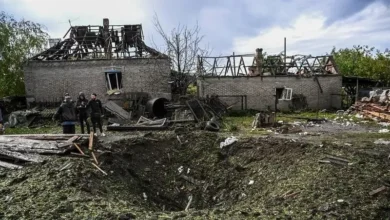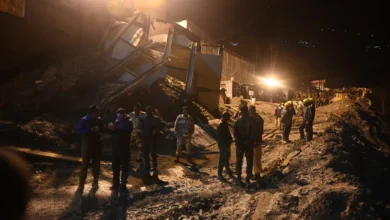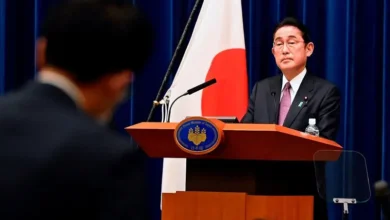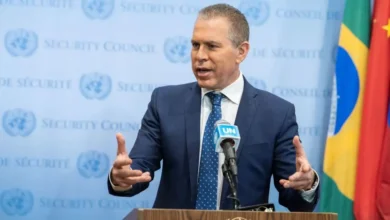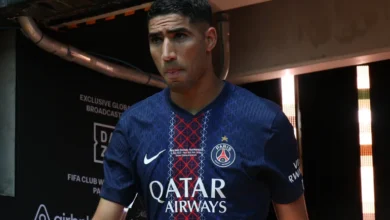Can left-centrist parties unite to block far-right win in French elections?

France is firmly in uncharted territory after President Emmanuel Macron’s snap elections gamble backfired and saw the opposition far-right National Rally (RN) party surge to a dramatic win in Sunday’s parliamentary first-round polls, analysts say.
Led by Marine Le Pen and her young protege, Jordan Bardella, the RN looks set to take the biggest chunk of the 577-seat lower house having come away from the first round of voting with 33 percent of the vote, nearly double the 18.9 percent share it won in the last parliamentary elections in 2022.
If its position in the polls does not shift in the crucial, second round of voting on July 7, this election could deliver the country’s first far-right prime minister since World War II.
Macron’s centrist Ensemble coalition, meanwhile, trailed at a distant 20.3 percent, a devastating blow for the ruling alliance. The results are worse than the coalition’s 26 percent in the 2022 elections.
The RN’s success is likely to see it gain a majority of seats in the parliament on Sunday, but analysts say it could fall short of the absolute majority it needs, with polls projecting it will take some 230 seats, not quite the 289 magic number. Macron’s alliance is predicted to clinch only about 70-100 seats, while the left coalition, New Popular Front (NFP) could take about 165 seats.
Left and centrist party leaders are now scrambling to block the RN by negotiating a strategic alliance between traditionally opposed blocs.
If they fail, analysts say President Macron could be forced to work with an opposition prime minister in a rare “cohabitation” alliance (one in which the president and prime minister are from different political parties). That could significantly diminish his powers and roll back his government’s policies on a vast array of issues, including energy, the European Union and France’s support for Ukraine against Russia.
Here’s what we know about how parties are manoeuvring to block the RN:
How are left and centrist parties responding?
Left and centre blocs are scrambling to realign themselves in hopes of stopping an absolute RN win in Sunday’s run-off. Time pressure adds more uncertainty: candidate lists must be ready by Tuesday evening, experts say.
Coalition leaders, including Macron, have called on voters not to “give one more vote” to the RN.
Importantly, they have also called for an alliance between two traditionally opposing blocs to fight their common enemy – an exclusionary tactic referred to as the “cordon sanitaire”, which has been employed in several EU countries to hold extreme parties at bay and keep them out of government.
“Faced with the National Rally, the time has come for a broad, unequivocally democratic and republican alliance for the second round,” Macron said in a statement. “The far right is at the gates of power,” Prime Minister Gabriel Attal warned in a post on X.
Will this strategy work?
This strategy is easier said than done, experts say, as some groups are wary of collaboration.
The coalition of left-wing parties, New Popular Front (NFP), has, for its part, reacted swiftly. Leader Jean-Luc Melenchon has promised to withdraw any candidates who placed third in the first round “under all circumstances”.
That means the votes of left and centre voters will be less likely to be divided on July 7, as only the centrist candidates will remain on the ballots in those cases – although it remains unclear if voters will go for this strategy.
Centrist parties, however, do not appear as enthusiastic and are wary of joining the left coalition led by Melenchon, who is seen by some as a polarising figure.
“There’s a number of conflicting positions,” said Jacob Ross, a researcher with the German Council on Foreign Relations (DGAP). “Macron’s party has followed the same logic, but others have said they’d do so only in areas where they support the centre-left candidates, not in areas where extreme lefts are running.
“So, where we have a very clear position in the left alliance, it is a lot less clear in the centre.”
Meanwhile, one candidate for the Ensemble coalition, Albane Branlant, who competed in the northern Somme department, has already heeded calls for third-placing candidates to step down. “I do not confuse political adversary and enemy of the Republic,” Branlant posted on X as she announced her intention to withdraw from the race.
